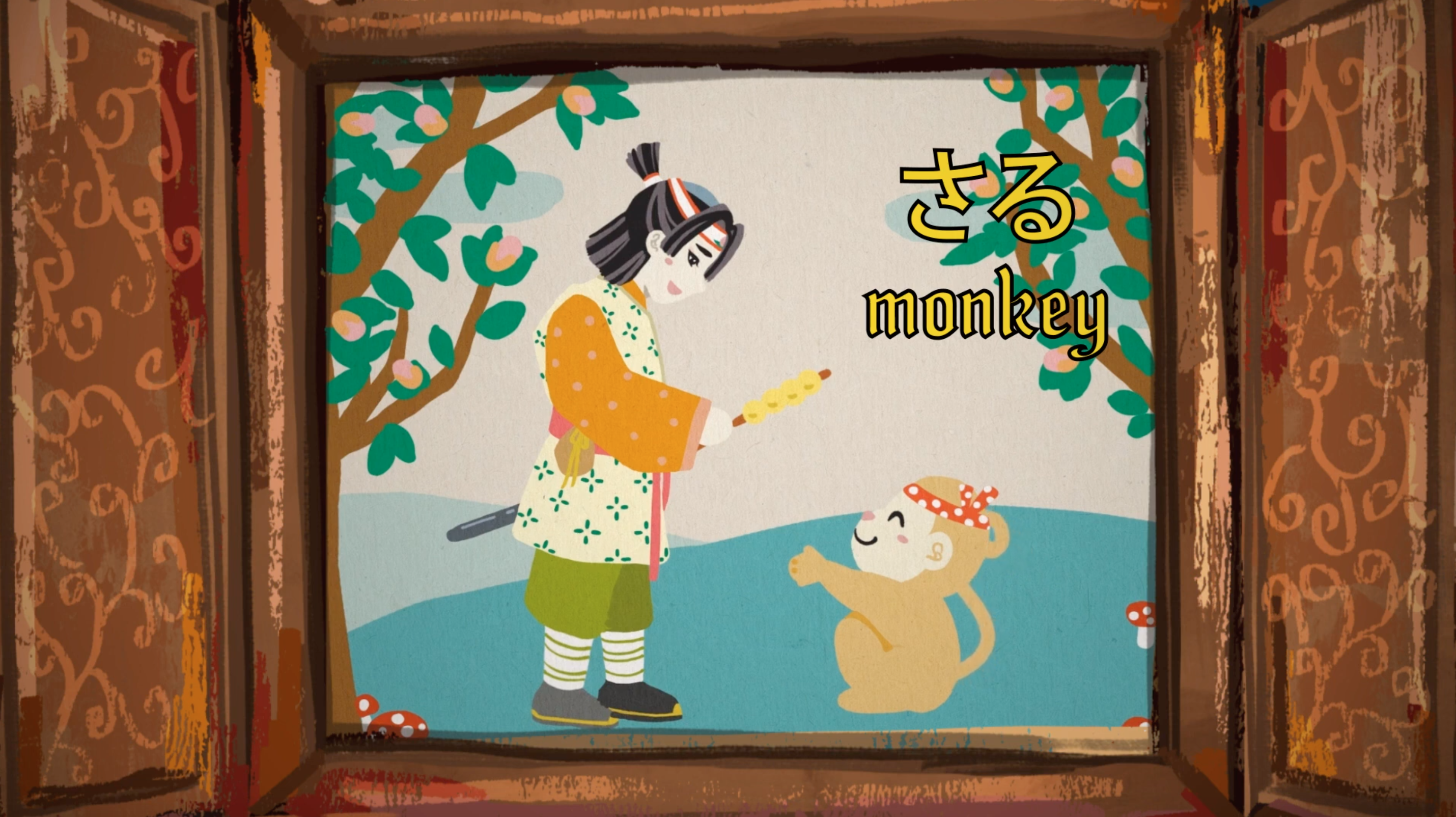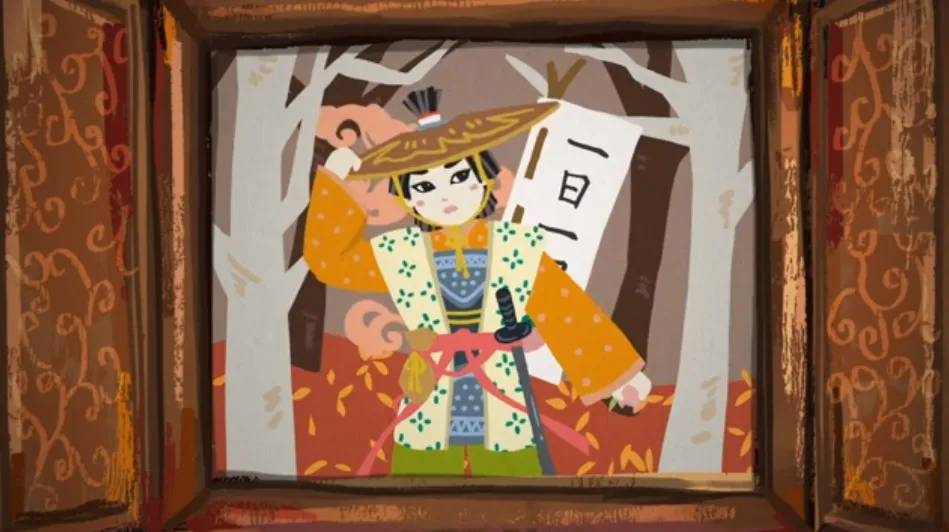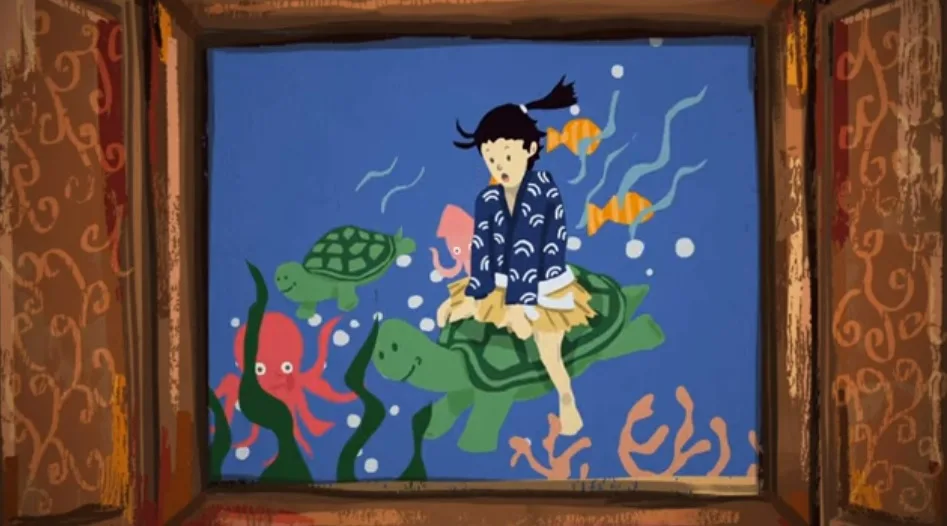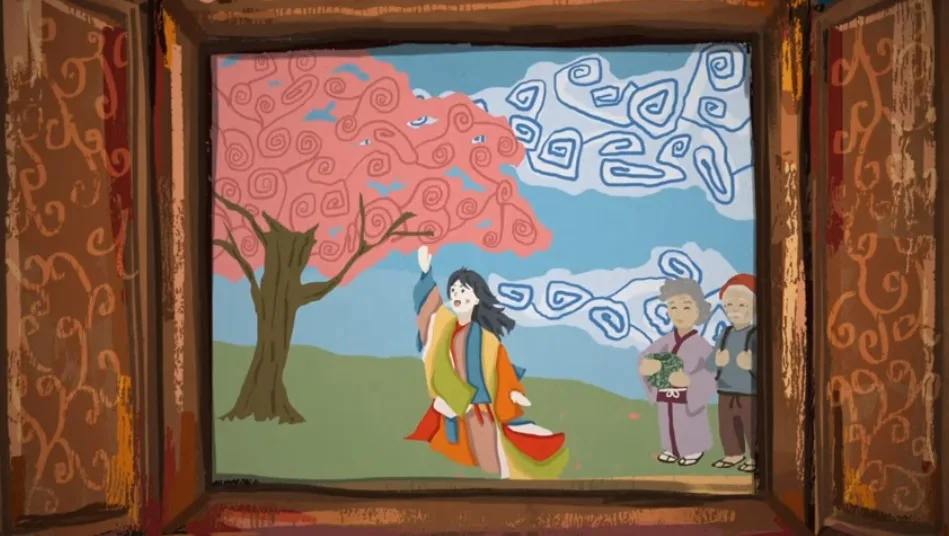Bilingual Kamishibai Mini Library

Bilingual Kamishibai Mini Library
Kamishibai (Japanese: 紙芝居, “paper play”) is a long-practiced form of street story-telling in Japan. Our mini kamishibai library offers some of Japan’s most popular stories featuring Japanese-English bilingual narration. We hope you enjoy this series of fun stories with various themes and unique characters!
These stories are designed for children of any age, but they are also perfect for students and adults who are learning Japanese language and culture.
Discover more of Kamishibai’s history here.
 |
 |
Japan Society presents the classic tale of Momotaro (Peach Boy), Japan’s popular folklore hero! Follow Momotaro in his quest to Oni Island to defeat the wicked Ogres terrorizing his village! For children of all ages.
Additional languages available: Portuguese | Spanish
 |
 |
A young fisherman named Urashima Taro is rewarded after saving a baby turtle from a group of bullies. He is invited to the Dragon’s Palace deep below the sea, but while enjoys all the pleasures of the palace, he realizes he is spending too much time away from home.
Additional languages available: Portuguese | Spanish
 |
 |
When an old man comes across a glowing bamboo stalk, he is surprised to find a little girl inside! He and his wife raise the mysterious young girl, and name her Kaguya Hime, the Princess Kaguya. As she grows up beautifully, she finds she must eventually return to her home on the moon.
Additional languages available: Portuguese | Spanish
These videos are created in collaboration with Japan Society and Japan House São Paulo. Copyright © 2021 by Japan Society, Inc. and Japan House São Paulo.
Education and Family Programs are generously supported by Mitsubishi Corporation (Americas); ORIX Corporation USA; The Masako Mera and Koichi Mera, PhD Fund for Education and the Arts; The Norinchukin Foundation; Satoru Murase; Susan J. Onuma; Joshua N. Solomon; and other Education and Family supporters.


Japan Society arts and culture programs are supported by the New York State Council on the Arts with the support of the Office of the Governor and the New York State Legislature, and in part, by public funds from the New York City Department of Cultural Affairs in partnership with the City Council.


Japan Society’s 120th anniversary initiatives and related programs are generously supported by Champion Sponsor, MUFG Bank, Ltd.; Advocate Sponsor, Mizuho Americas; and Friend Sponsor, Mitsubishi Corporation (Americas).
